Daley Downing's Blog, page 13
May 9, 2020
Stranger Things: The Definitive Whinge
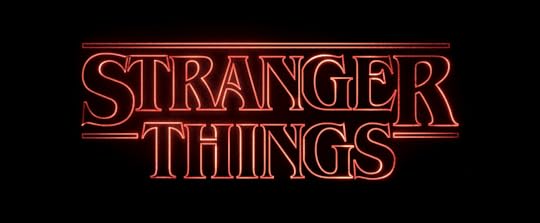
Time for another edition of: I finally got to immerse myself in this thing I’ve heard so much about, and discovered I didn’t love it as much as everyone else does!
Necessary notes: I won’t be holding back on any spoilers, so if you’re behind on the series, feel free to skip parts of this post. And, if I trash an aspect you really enjoyed, I am sorry. Please remember that these are just my opinions, based on my taste, and my perspectives.
I didn’t hate this show. Far from it. I was honestly surprised at the overall tone being darker and creepier than I’d expected — even from a program entitled Stranger Things. But, despite my initial misgivings, while I did get sucked in, and don’t feel watching was a waste of time or anything even close, there are a number of plot points, lapses in writing sense, and various dead ends that have me scratching my head.
Strap yourselves in — this is going to be a long one.
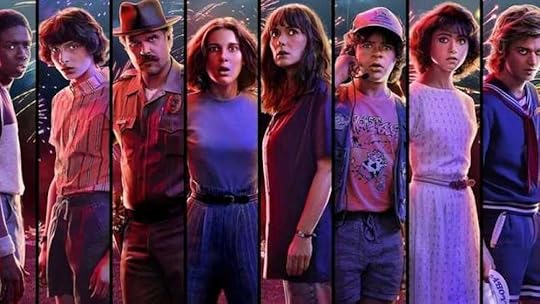
Let’s begin, as they say, at the beginning: Season 1. From the very first episode, I was a little twitchy — the obvious 1980s setting might end up turning cheesy real fast; I don’t play D&D, so while I appreciated the references, they went right over my head; and the way whatever escaped from the lab made poor Will Byers just disappear scared the daylights out of me.
You have to remember, I went into this adventure with little to no knowledge of the premise or events. I’d heard of the show — meaning, I knew it existed — but that was it. I’d never seen any ads, trailers, or clips. I found myself utterly unprepared for how disturbing, on a primal level, the atmosphere of season 1 would be.
On the surface, it’s about amoral bastards conducting heinous experiments in a secret lab; it’s about a monster from another dimension running amok; it’s about childhood friendships and sibling dynamics and small town peace being disturbed by the weirdness.
But underneath, this is a very frightening portrayal of our deepest fears — of children going missing, of the classified government lab conspiracy being true, of the unthinkable monsters being real.
And those factors were what hit me so strongly. I ached for Joyce Byers as she continued the search for Will; ached for Eleven, an innocent child raised to be a super-soldier; ached for no one believing the boys who knew there was a chance their friend was still alive.
I can concretely say I appreciated the conspiracy theory turning out to be right — because it validated all of the boys’ and Nancy’s misgivings, Joyce’s perserverance, and pushed Hopper out of his own bad choices. It made heroes out of ordinary people. It made the audience believe in miracles, made us root for characters who started out as real jerks (*cough* Steve Harrington), and cheer on the kids who unwisely rushed into danger.
Now, here’s where I start getting to the parts that rankled me.
It has to be said: Hawkins is evidently a town of morons. Yes, the lab was meant to be secret, so I completely get the residents wouldn’t realize it was conducting literally mindbending, possibly world-ending experiments. But, in so many other ways, I simply don’t comprehend how no one would have known something odd was going on.
For example, when Eleven first escapes from the lab, and the scientists murder the diner owner, Hopper is told by the victim’s friends there’s no way it could’ve been suicide — and, oh, yeah, there was a strange kid on the premises right before his death. This reaction sounds very plausible. So is Nancy insisting her best friend wouldn’t have run away — because she knew her best friend.
But, sadly, as the season continues, the townspeople lose their credibility. Barb’s parents seem utterly unconcerned about their daughter not being home in…a while. Mike and Nancy’s parents have ABSOLUTELY NO IDEA Eleven is hiding in the basement for like a week straight. Lucas’ and Dustin’s families don’t even exist on screen at this point. Joyce apparently has no relatives, co-workers, or adult friends joining her in the search for Will (which is highly unlikely in and of itself).
By the time we reach the season finale, I was rather confused, and annoyed. Why would Mike’s dad take for granted the words of the scientists who show up out of nowhere and threaten his children? How does half the middle school get destroyed by the Demogorgon and no one notice? Don’t the Harringtons ever care that Steve comes home with a bruised and bloodied face?
And there’s the not-so-small matter of Eleven having to kill all the scientists and soldiers who came after the kids the night the Demogorgon broke through the school wall. She’s just a kid, and regardless of the fact it was self-defense, it should be seen as gruesome and horrific for anyone to experience. And it’s not the same as killing the monster, because it’s a monster, who won’t stop if you beg or blackmail or send for the military. But killing people — even terrible people who should be punished for their crimes — affects someone.
How does the poor kid go on from all of that? The writers never really got to this.
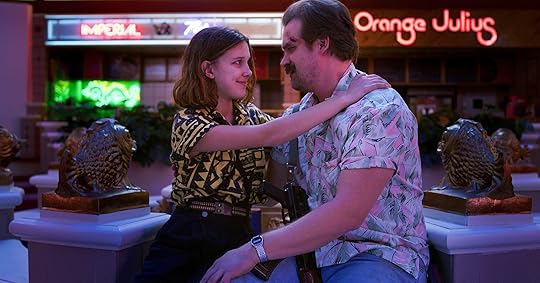
Moving on to season 2: At first, all seems well — Will is trying to get back to a normal life; Nancy and Steve are more mature; even before we find out Hopper’s new role with Eleven, we can tell he’s changed, for the better. But, of course, there’s a new monster waiting behind the curtain, and when it strikes, it won’t be pretty.
None of that really bothers me — I mean, without conflict, it isn’t exciting, as a viewer. And there was that foreshadowing at the end of season 1, that wherever the Demogorgon came from isn’t finished with Will and Hawkins yet.
There are also plenty of hints that the loose ends from the first season have not gone completely unnoticed: The independent journalist, Murray, pressing Hopper for the real details on “some Russian girl” wandering around town (and flipping vans and breaking arms with her mind). Barb’s parents finally admitting to Nancy and Steve that they’re hiring a private investigator to find out what happened to their daughter. The new, legit scientists at the lab trying to figure out how to contain the spread of the tear into the Demogorgon’s dimension.
I liked all of this. I think season 2 was my favorite.
Except for…Max. And…Billy. And that one totally pointless episode with Eleven’s “sister”.
And there’s…Bob. It was pretty clear from the get-go what would happen to him. Poor Bob.
In season 2, we finally get to meet Lucas’ and Dustin’s families, but, unfortunately, that’s more disappointment on my end. Dustin’s mother and Lucas’ parents are a perfect example of how to be clueless. This is how you get kids running off to the junkyard, at night, attempting to blow up Demodogs.
Here’s my biggest problem with this show: WHY ARE ALL THE PARENTS SO STUPID. With the exceptions of Joyce and Hopper, NONE of the mothers and fathers seem to give a flying damn where their kids are, at any given time of day or night, what they’re doing, who they’re with. How does it never occur to them that something’s up? Mrs. Wheeler had half a brain in season 1, but in season 2, that kind of fades away, and by season 3, she’s an awful excuse for a guardian.
Joyce Byers stands out as the singular, shining example of a parent willing to do anything to protect her kids, and it’s so refreshing. When Hopper more or less adopts Eleven, he gives being a dad again his best shot, and although he makes mistakes along the way, at least he TRIES. Watching Hopper and Eleven grow together, in their new roles, warmed my heart.
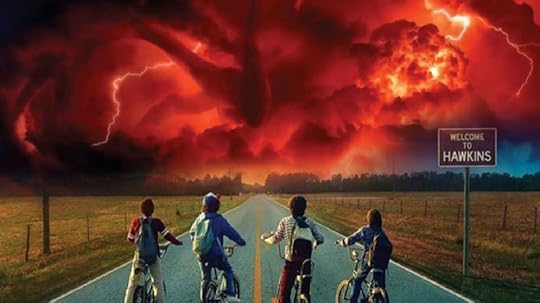
Season 3 was, well, pretty lackluster. Personally, I wasn’t very invested by this point (due to the previous failings I’ve already explained), but I watched it this past week because, well, I was curious.
Here’s my simple, straightforward thought on the plot: It’s believable. Yes, the Russians-opening-the-Gate premise works; and — despite my personal dislike of her — I can see Max becoming more an integral part of the group, her and Eleven bonding, and Mike and Eleven experiencing relationship growing pains.
I’ve heard a lot of complaints about the third season. In some ways, I don’t completely disagree. Where I’m coming from, though, is this: It’s only a hot mess when you consider it’s basically teenagers becoming superspies. That’s where it all falls apart. If it was adults trying to uncover the Russian nuclear conspiracy and whether the Mind Flayer was back, it would be much more plausible. It would resonate a lot more with the audience that somebody at the Hawkins Post — not Nancy, as an intern — came across something bizarre happening to rats; that a member of the police department started looking into a corrupt Mayor; that a store owner at the mall noticed odd behavior among some colleagues.
Placing teenagers — and Lucas’ tween sister — in brutally obvious danger (such as facing down actual Soviet military) is irresponsible on the part of the showrunners. Irresponsible socially, and creatively.
I cheered when Joyce and Hopper finally arrived back in Hawkins for the season finale, and did their best to get the kids out of the mall, and save them — even though it meant putting themselves at risk. That’s what real grownups do when the Gate is about to open and destroy the entire town.
I’m on the fence about the confirmation there will be a fourth season. I could’ve handled the end of the whole series being Joyce selling the house and hoping for a fresh start; it makes sense for the character and the plot. Joyce adopting Eleven after Hopper; Eleven not having her powers now and finally getting a chance to be a normal kid; Will and Jonathan getting a chance to step away from constant reminders of the trauma — yeah, it’s decent.
But it still leaves a lot of stuff unaddressed — and at this point, maybe attempting to get back there wouldn’t work.
My biggest sticking points:
Doesn’t Eleven have PTSD? Shouldn’t she go to therapy or something for having been raised as a lab rat/supersoldier? Won’t this come back to haunt her one day? Wouldn’t she start having nightmares, or acting aggressively, or…something?
Would the boys’ families ever get a clue, about, well…anything? That includes Max’s mom and stepdad — I mean, since Billy died pretty horribly?
What happened to the people who became part of the Mind Flayer’s army and…”melted”? Didn’t anybody care about that part of it?? Even the main characters seemed to have forgotten about it by July 5th — when it was a major traumatic event.
Even with the teasers at the end of the last episode, with the news report on “the small town that went to hell,” and that awful, heavy-handed foreshadowing to Russia, I’m not sure it’d be worth it to watch.
All in all, it seems that the title Stranger Things is more than appropriate.
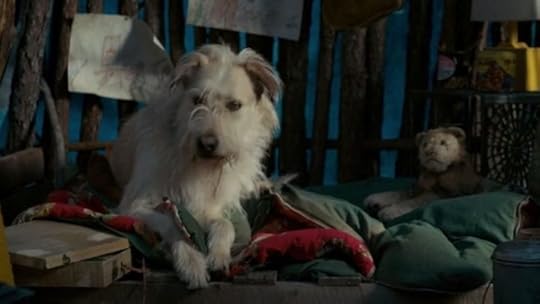
May 3, 2020
What Good Can Come of a Crisis?
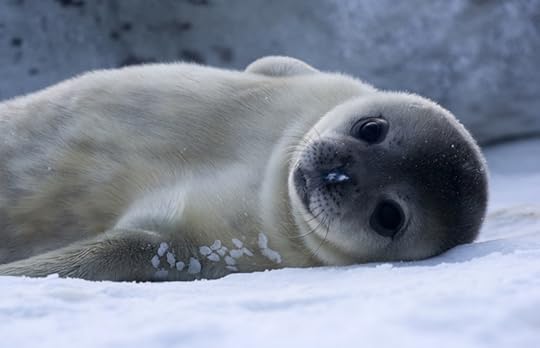
This is something I’ve been considering a lot lately — what happens when the crisis is over, when new lessons are learned, when “how it was before” seems too insurmountable or too impractical to return to.
Although the current crisis we’re in feels like it has lasted forever, the fact is, one day, it will be done, or at least mostly finished. We will move forward. Yes, life will again be different (because, let’s face it, we’re in a new routine at the moment). But it doesn’t mean different has to be bad.
The part many people miss is that, while we’re in the present upheaval, the seeds of tomorrow are being sown.
While we maintain extreme measures to keep each other safe — and begin to wonder how much is too much, and fear what isn’t be enough — the building blocks of the new world are taking shape.
As we determine the best way to safely gather in buildings and public spaces that are so familiar to us, yet may never feel “the same as before,” to rejoin events and routines that have not noticed our absence during the pause, maybe we could find what was missing from them previously.
For years, as an advocate for education reform, I’ve been saying that school days are too long, too packed with unnecessary material, too frustrating for students and too taxing for teachers. Now that we’re required to redesign the “typical” school day, it’s looking like smaller classes, shorter days, longer lunches and recesses, less homework, more learning through discussion will become the focus for many districts. This is a good thing, as it will eventually lead to a reduction in childhood stress and anxiety, in parents feeling they must encourage their kids to perform at an unattainable level; and one day we may reach a feeling of school being, if not somewhat enjoyable, at least tolerable, and not such a chore.

Megachurches being temporarily closed is actually a blessing, too. People attending worship services via websites or in parking lots puts the focus back on God, not the showy, flashy kind of services too many churches are characterized by in recent years. We are in turmoil socially and economically, so we reach out to divinity for help, in the purest sense of the word. Our concern for the ill and the poor have led those of us who can to put forth money and supplies and effort — that we may not have when times were prosperous, and busy and stressful. Over two thousand years ago, Jesus told us to love our neighbors — and it looks like now, we are.
When we no longer have to stand six feet apart while praising God, I really, really hope we won’t forget that.
From a natural introvert’s point of view, I have always been concerned about crowds — about whether thousands of people in one space was safe, not just in terms of terrorism or crime, but also in terms of health. I’m intrinsically wary of germs being nonchalantly passed around, and now it appears the medical community finally has to admit to this. New restrictions on how many people can be in one place at one time, not just for the immediate future but possibly months to come, only make sense to somebody who used to watch the stadium shots at the Superbowl with horror, or recoil from the very suggestion of attending a music festival or state fair.
Does this mean we’ll never again congregate for events that meant so much to us? Of course not. It just means that we’ll get back to what truly matters about each form of celebration. Weddings will realistically be limited to the 50 or so people the bride and groom really want at their special day. Championship games will mean lots of business for sports bars and restaurant takeout — and an excuse for families and friends to join together, at home. Parades may only be watched from people’s front windows and front yards.
I can’t lie, none of this sounds bad to me.

When businesses reopen, maybe they’ll start closing for the day earlier — something many of them could, putting less pressure on employees who will happily go home to their families a couple of hours sooner. Fathers — and mothers — who have been slaving away in offices and missing a lot of their children’s milestones may (successfully, I bet) bargain for the occasional day, or week, of working at home.
Saving for college may become drastically less important, as huge universities release they can’t sustain the pace they’d been forcing their students to race. Internships and pre-job training will gain in popularity as more high schoolers are given the freedom to say, “I don’t want to go to college.” Parents will redirect the concentration of these teen, and even tween, years to be on the single extracurricular their kids enjoy best, or have a passion for. (They’re probably realizing right now how much gas they were burning every season driving to multiple activities.)
Movies and TV shows may find it necessary to their survival to come up with happy endings, original plots, un-tropey characters, as people will probably lose their tolerance for shallow “reality” programs, grimdark dramas, and meaningless echo chambers. We’ll want to read something that isn’t a thinly-veiled dystopian commentary on outbreak control. Entertainment like board and card games, jigsaw puzzles, and simply playing outside — already making a comeback — will start to seem really appealing.
The world will become hungry for a sense of normalcy — but we are also in a unique position of putting in our say for what normal should be. Being told to slow down and temporarily put aside our regular ways has resulted in many interesting thoughts from people affected by a disaster we’d wish away in a heartbeat.
Yes, life, the world, won’t seem recognizable at first. But, in some ways, could that be preferred?

April 16, 2020
Introducing “I is for Invisible, M is for Moth”!
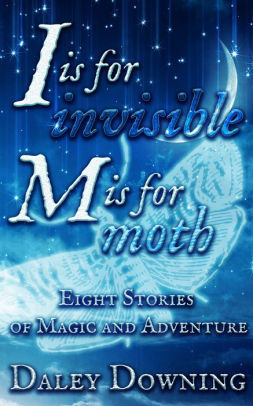
Good afternoon, everyone! So, after quite a while of not having a new release announcement to make, today I’m here to share the following:
It’s called “I is for Invisible, M is for Moth,” and while it’s not completely new, it is a fresh collection of all my short stories, and it also — for the first time ever when it comes to my work — has ebook versions available for Kindle and Nook! Paperbacks are on sale as well.
Here’s a link: https://www.barnesandnoble.com/w/i-is-for-invisible-m-is-for-moth-kyle-shultz/1136844306?ean=2940163066223.
And here’s a link:
I am very excited to finally be able to offer digital versions, and to expand my platform. And to announce that there is more coming! I’m working on updated editions of all of my existing titles, and as soon as each one becomes a solid thing, I’ll fill you in!
If I could add a couple of requests (hey, of course I can, it’s my blog): First, while I know that Amazon is quite popular, if you don’t have a Kindle, or if you (like me) simply don’t do the ebook thing, please give ordering from Barnes and Noble equal consideration. Physical bookstores are a somewhat endangered species that we need to preserve, and I am proud to use them as an indie author, and as a reader.
The other request: If you have read and enjoyed anything I’ve written, please do consider leaving a review on Barnes and Noble, Amazon, or Goodreads. Reviews can really help an indie author’s exposure, and positive word of mouth is great marketing for us!
Even in the middle of very unusual, and stressful, circumstances, I maintain that art matters, and I’m still pretty tickled for even a very low-key book launch. Take care of yourselves, moths.
https://www.amazon.com/s?k=i+is+for+invisible%2C+m+is+for+moth&i=stripbooks&ref=nb_sb_noss
https://www.amazon.com/s?k=i+is+for+invisible%2C+m+is+for+moth&i=stripbooks&ref=nb_sb_noss
April 11, 2020
An Autist’s Guide to Surviving a Pandemic

Wow, what a title. Yes, I am going there. I debated doing so for a while.
And then I had to decide: Should I make this post humorous? Totally serious? A combination of my overstimulated angst and pithy sarcasm? All of the above?
I could also say, “Just kidding. The title is a misnomer. There is no surviving. It’s the apocalypse. Haven’t we all figured this out yet?” But then I would legit feel bad for the people who wouldn’t realize I was being snarky with that one.
So, I think I’ll just get to what’s been on my mind lately.
The biggest problem for me during this virus-crisis and containment-craziness is the sudden loss of something I didn’t know I expected to be there. Despite not really minding the social distancing — because, no joke, being six feet apart from people I don’t know, not shaking hands, and curbside pickup literally sounds amazing — I didn’t realize until now how much I relied on a world whose rhythms I find too taxing. At least I knew what life would generally be like — work, school, shopping, social gatherings. There were set rules, rules I had spent years learning and making second nature. Now all of that is on hold.
Will those rules still be there when the restrictions are scaled back? What if new rules are created instead? Either I have to re-learn, or learn anew. And how do I feel about that? I DON’T KNOW HOW I FEEL ABOUT THAT! All of the extra emotional processing I’m being asked to do to prepare for an uncertain future simply results in: AAAAAAHHHHH!!! I can handle not knowing everything, but even an outline seems to be impossible, and that just creates an immense amount of stress.
So, how am I surviving?
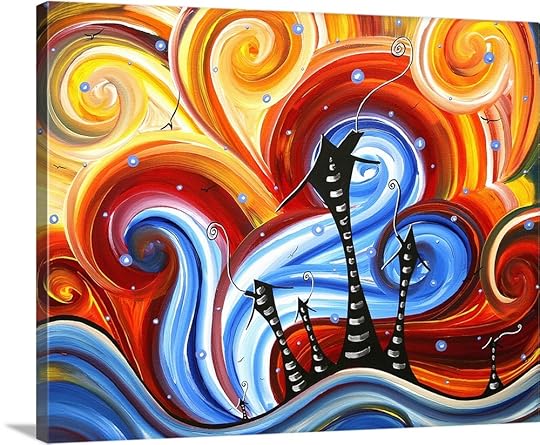
Not very well, honestly.
Children are around ALL THE TIME. People WANT THINGS. There is NOTHING to do, and somehow I am still SO BUSY. Chores and errands have taken on new dimensions, due to sanitation guidelines, and while I can handle those (and understand them), I am also surrounded by complications and burdens as a result. Schools being closed mean that Muffin is struggling to maintain skills he isn’t one bit inclined to practice without the structured classroom environment he’s familiar with. Me not having an outside job to go to means I would really like to get some writing and editing done, but with EVERYONE AROUND, concentration is an endangered species.
(For example, at this very moment, I’m fighting with Muffin about him letting me finish this post before he loads up his Minecraft world to check on his wolves. Typing the words in my head while shouting different words in his direction is ridiculously hard.)
The pressure is massive. I need space, and quiet, to be able to recharge, and feel more like myself again. But I am being pulled in several directions at once — either to be a teacher, or a parent on overdrive, or a person not spreading a sickness I haven’t even been exposed to, or a displaced library aide trying to have half a chance to focus on some online training. We are all getting on each other’s nerves, when nerves are already heightened due to the atmosphere outside our house being insecure and frightening.
None of this is conducive to my well-being.
Okay, let’s give this another go, then: How can I combat it?
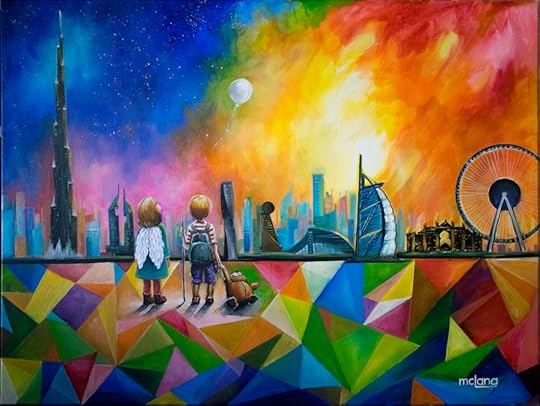
I can still steal enough moments to read at least somewhat, and at least write a little. I can still cuddle the cat, and occasionally watch a video with White Fang, or a movie I’ve been wanting to see. At first, I cooked more than I had in weeks. I’ve definitely been conscious about more vegetables, less caffeine, and less sweets. In some ways, the change in routine has shown me just how exhausted I was after working two part-time jobs for six months. Getting to sleep in every single day has been a luxury (that, sadly, I’ll pay for later).
But I’m also trying not to concentrate on the negatives right now. One day, things will be back to, not normal, but a semblence of what we expect, and I know I’ll greet it with mixed feelings. If people decide shaking hands isn’t cool anymore, I’ll actually be glad. If not needing to go into crowded stores to get your supplies or groceries becomes more common, I think I’ll take advantage of that. If the kids go back to schools with less students per square foot, I imagine mine would be totally okay with that. If curriculums adjust to fewer non-academic requirements, especially for special ed students, that wouldn’t be any skin off their noses, or mine.
When schools are open again, I will relish the temporary quiet. I’ve already looked into virtual lessons for dance and creative writing, and that might be challenging at first, but I want to give it a shot, so I can still advance that part of my career despite the new environment and delivery system.
This current situation won’t last forever; partly because nothing does; and partly due to necessity, of society, and of the economy and many other aspects. I know that. I do sometimes focus on that. In the meantime, I want to put my best foot forward at adapting to hardly-ideal circumstances; partly out of lack of choice; partly because I have to find ways to cope.
So, the short answer is: Still find ways to carve out a little space and time for yourself. Indulge in hobbies that you enjoyed before the start of the crisis. Communicate your limits to your family (and make them abide wherever possible). Ignore the news occasionally.
And invest in a bit of alcohol. Or chocolate, whatever’s your thing.
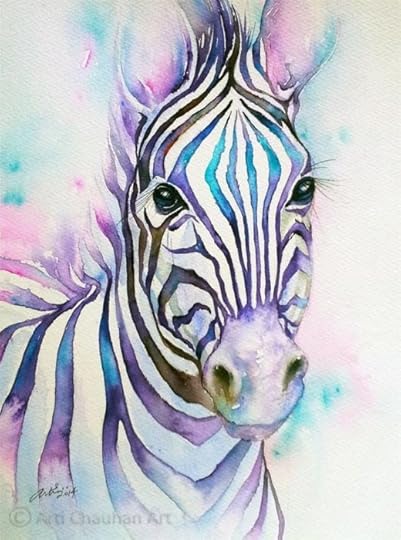
April 2, 2020
Autism Acceptance Is The Goal

So, today is Autism Awareness Day. There have been and still are and will most likely continue to be a variety of debates around this phrasing. Why? Because making neurotypical people simply aware that autism exists accomplishes about nothing as to what happens next.
Every time the human race learns about something new to them, the immediate question then becomes: Well, what do we do about it? Humans, in case anybody hasn’t noticed, aren’t really content to just let things be. This includes autism.
Autism has been seen as everything from an inconvenience to a plague upon society. (No, the irony of saying that while a real pandemic is going on does not escape me for a second.) Autistic people have, for years, been made to feel that how we naturally are is some sort of horrible mistake, and that we should either strive to become “like everyone else,” or at least feel bad about being different.
After being stuck in this cycle for decades, forced to believe it, and not fight against it, finally, one day, we autists became convinced there had to be a better way…and we started saying: “What happens next?”
The research, the stats, and our own experiences showed: Autistic children grew into autistic adults, and our sensory perception, social interaction challenges, and emotional processing difficulties did not go away. Yes, we could learn what others considered appropriate speech and tone and mannerisms; yes, we can frequently apply them. We can go to concerts, sports matches, the cinema, the theatre, camping and college and work. We can take public transportation, go to the grocery store, figure out how to create a Facebook account. Yes, we function very well in civilization.
But at what cost?
Because the bus is ALWAYS too crowded, the campground too muddy, the bar too loud. We will NEVER stop craving peace and quiet, and wondering if it really mattered that we didn’t get that joke all our co-workers laughed at.
In the midst of transitioning from thinking of ourselves as how the world thinks of us, to how we view ourselves, we discovered that the biggest barrier is NOT a lack of awareness of autism: It’s a lack of acceptance.
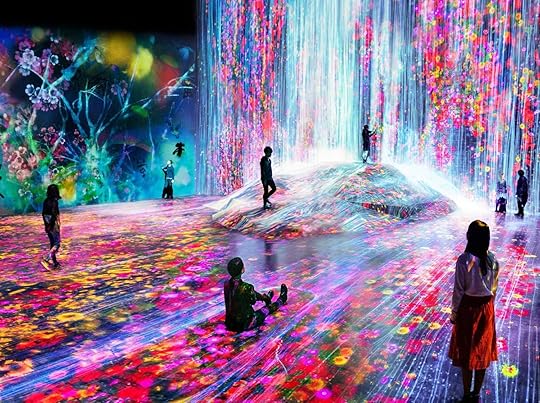
You probably hear me banging on about this pretty often. With good reason. This is the hill I will die on: Being autistic does NOT make people less, nor should we have to change to make others around us feel more comfortable. We don’t need more organizations founded by neurotypicals explaining to other neurotypicals that we have “an intellectual disability that impairs motor function and social connectedness.” We need people who don’t relate to how we live our lives being OKAY with us being US.
We don’t need pity; we need tolerance.
We don’t need cures; we need accommodations.
What’s the point of making us just like the rest of the world?
It makes us less scary to those who place conformity above equality and liberty. And the god of Conformity has a pretty big altar in many civilizations today.
Who does it actually benefit when we’re forced to stop stimming, to mask our natural behavior? Not us.
Who will have a better quality of life because we aren’t automatically picked out of a crowd as neurodivergent? Not us.
This is how those of us diagnosed with ASD have been forced to live, for a very long while. When does it change? What happens next?
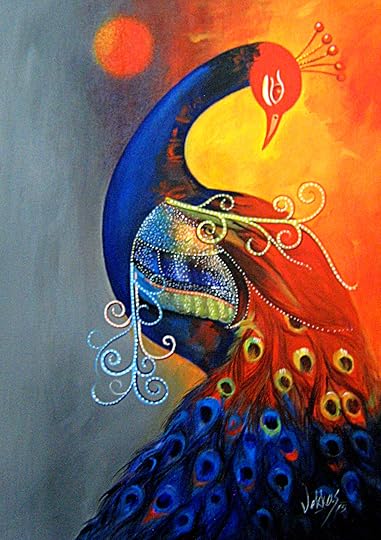
I’m only one of many who wish for a world that doesn’t find it necessary to draw attention to my “quirks.” That sees the value in looking at things from another perspective. That won’t strive to take away parts of myself, claiming it won’t hurt.
It seems we’re born autistic, which means we don’t have any more control over it than our skin color or ethnic heritage. We can’t decide to be on the spectrum. But you can decide how to treat us.
Today, please note that #ActuallyAutistic individuals on Twitter are promoting a new symbol, a rainbow infinity sign that we are pushing over the blue puzzle piece, selected for us by neurotypicals who feel autism is a plague that needs a cure. We want to present as fact that we do, and should, feel pretty good about being us.
That ideal world I spoke of does not yet exist. (At least, not here on Earth. If it is somewhere in the galaxy, let me know, okay?) So we have to keep trying to make it.
Yes, it is a fight; people with intellectual disabilities being seen as equal is one of the newest waves in civil rights struggles. And we need advocates on all fronts: In our families, our schools, politically and legally, medically and socially.
If you’d like to join us, please, today, speak of acceptance. That’s the crucial word now. The cause, the goal.
We’ve already accepted that you think we’re different.
Now we’re asking you to accept that it doesn’t matter.
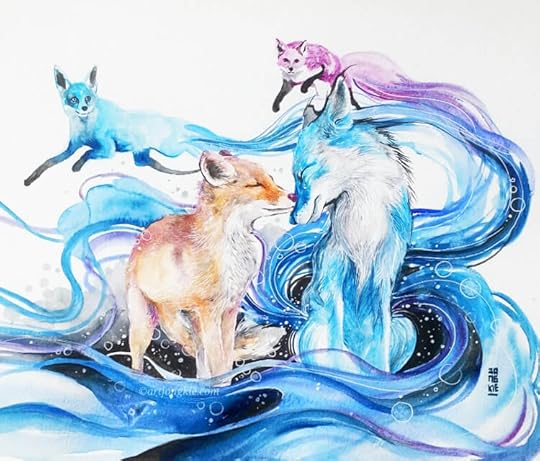
March 27, 2020
Officially Jumping Off The Hype Train
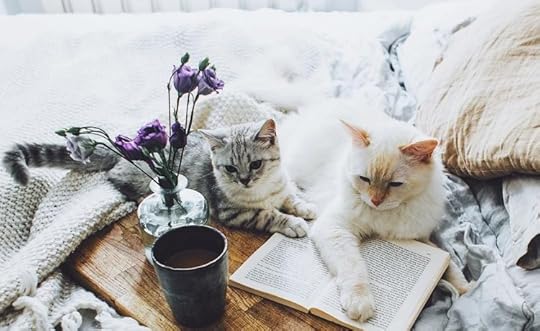
Okay, not literally jumping, don’t worry. Since the “hype train” isn’t an actual form of transportation, that probably should’ve tipped you off, that I’m not anywhere near any sort of dangerous behavior…rather, that I’m about to go on a rant. About a very real bookdragon issue, that affects us all — falling prey to overhyped books that turn out to just be…well, bad for us.
Hype is a double-edged sword. Sometimes we wouldn’t have found out about a book or author we turned out to love if it wasn’t for hype. But, sadly, more often than not — at least for me — hyped titles fall absolutely flat, and it just kills me anymore. I’m afraid I’m in the mood to crush what will doubtlessly be a favorite for someone…but I believe we all know by now I am a persnickety bookdragon. (And quarantine is grating on my nerves, so this is how I’m going to release some of the pressure, not gonna lie.)
A Man Called Ove:
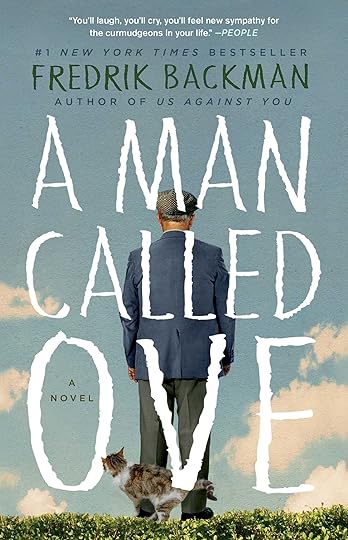
I’m very aware this is a big hit with a lot of readers, and in theory, I could see why — it’s the quintessential grumpy old man in the neighborhood whom everyone secretly loves, and eventually his grumpiness fades, and there’s a heartwarming turn. In theory. Listening to the audiobook, I got about halfway through the story before I threw in the towel. The writing was just ugh. The overdramatic, unrealistic plot, and overuse of tropes did me in — it’s one thing to start every chapter with, “A Man Called Ove Goes To The Store And Gets Pissed Off At Stupidity”, but to constantly refer to the narrator as A Man Called, and make sure he NEVER learns his neighbors’ first names was just aggravating. I was also pretty disturbed by the graphically-described attempts at suicide, and really feel this title should come with a big, bold trigger warning slapped right across the cover. A complete NO from me.
The Book Woman of Troublesome Creek:
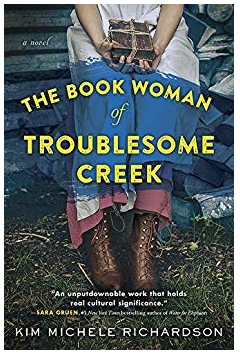
I can’t even count this one as “read,” since I didn’t finish it. But I am totally counting it as a hyped title that’s now going viral in terms of “everyone has to read this!”, and I wanted to throw it against the wall by page 25. Couldn’t even make it to the part where they started discussing the mobile library serving very rural areas of the American South in the early 20th century — because that sounded truly interesting. But when you’re claiming blue-skinned people existed in Kentucky (um, o-kay), and try to sum up the science for such a mutation in approximately 2 paragraphs…AND before we reach chapter 3, the narration describes in detail finding a hanged body, a marital rape, and inducing a miscarriage following that… Well, I knew I was out.
How To Stop Time:
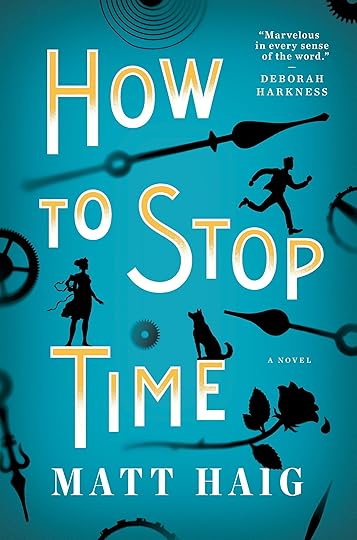
To begin with, the title isn’t accurate — the narrator is basically immortal, but time keeps moving on around him. And he was SO whiny and hard to like. None of the characters really stood out to me. And what was even the point of the Albatross Society? They didn’t seem to have any reason to exist as an organization, since they were apparently just there, telling people what not to do with their immortality. Lame. I did slog through to the end of this one, hoping it would get better. Can you already guess what my answer is?
Children of Virtue and Vengeance:
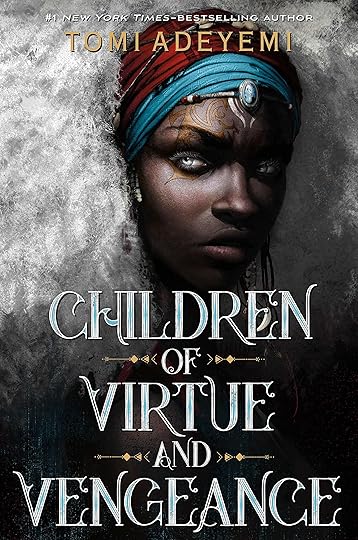
This one hurt, I won’t lie. Despite Children of Blood and Bone being far too long, I did enjoy it, and was excited to learn there was a sequel. But it turns out I shouldn’t have bothered. The characters were the worst versions of themselves, as if all the growth from the first book hadn’t even happened, and all the thrilling tension of following the plot that kept me going through all 500+ pages of the original was gone. This story was pretty much random battles broken up by intense, unnecessary angst. So not impressed.
So, after all of this heartache so early in the year (yes, these are my 2020 reads so far!), I will be concretely returning to my resolve that began to firm up late in 2019, to stick with tried-and-true authors for me, try more indies and small press when possible, and simply ignoring the hype to the best of my ability.
Again, I’m really sorry if I bashed one of your favorites; the only constant when it comes to literature is that taste is subjective!
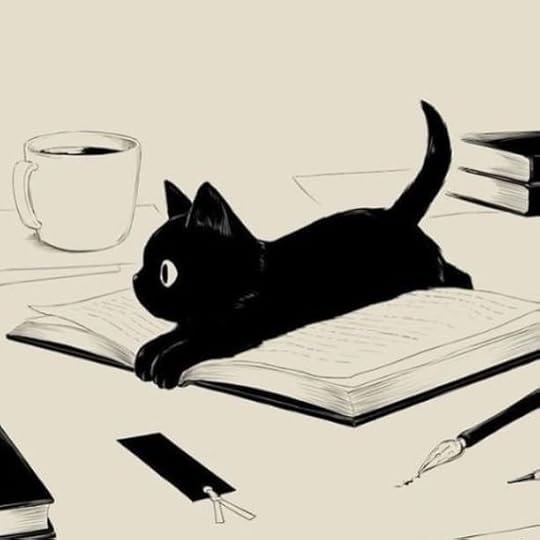
March 15, 2020
Art Matters
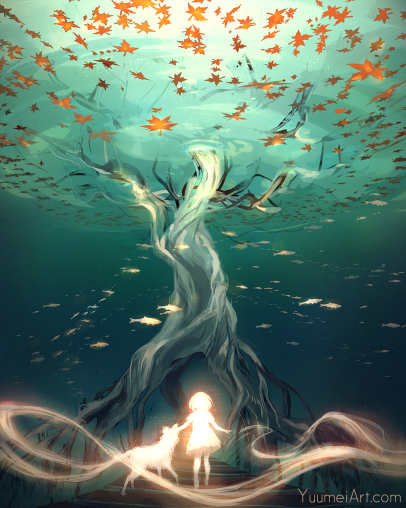
Yes, it does.
Even while the world is in chaos. Like it is right now.
Even when there’s a global pandemic. Maybe especially during our present circumstances.
We’re struggling to maintain any sense of normalcy, and some of us are actively preparing for the official start of the zombie apocalypse. A lot of creative types, across all disciplines, will be thinking: “What is even the blankety-blank point of finishing my painting/screenplay/novel/musical right now?”
I’ll tell you what the point is.
Art matters. Whether the world is sane and safe, or messed up as blazes and very turbulent.
It gives us beauty and order in the midst of ugliness and chaos.
It reminds us life isn’t always this bad. And that people are capable of producing more than fear and hate, pain and agony.
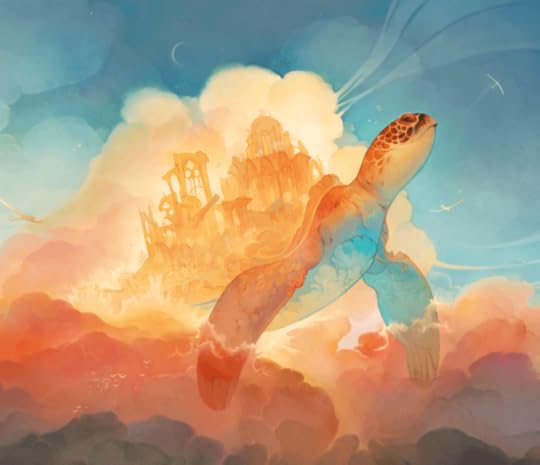
Art provides a safe space to explore all those nasty but necessary discussions on politics, prejudices, humanity’s failings and our own personal obstacles, and how all of it could get better. By indulging in literature, music, theatre, dance, we allow ourselves the chance to dream and to reach higher.
Think of those who came before you, which influenced your own creative pursuits. Our current artistic endeavors will inspire the next generation to do the same, to attempt more than a repeat of past mistakes, to strive for a truly new future.
Hint: You don’t have to write a dystopian novel about a thinly-veiled COVID-19 outbreak to make an impact in this direction.
And your medium doesn’t have to be realistic to accomplish this. Particularly in moments of great duress, fantasy appeals to the masses, and, really, with little wonder.
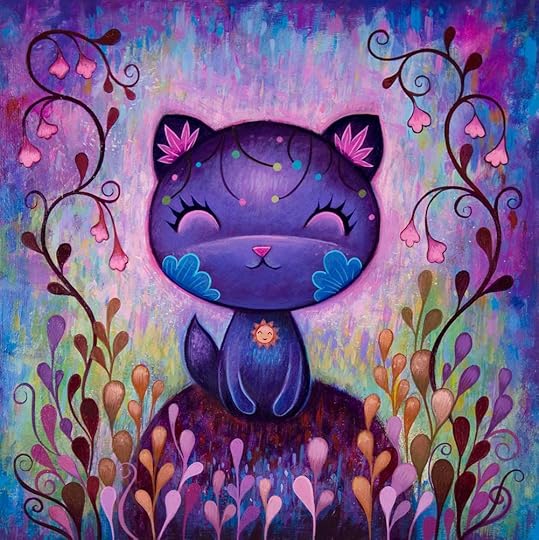
Art also helps us gain a little, much needed, perspective. We don’t have to focus on the mega-crisis all the time. Other aspects of life are still important, and taking an hour to catch up on your favorite series, or learn what happens in the next chapter, or to sketch a dog chasing a ball make all of that seem more real.
One day, the mega-crisis will be resolved, and then we have to have something to go back to. It’d be great if we never completely left it to begin with.
So, while you’re wondering if there’s a point to your art among all the other stuff going on, here — just, stop. Don’t give up on your art. The world needs it now, and will need it in the future.
Keep writing, drawing, painting, singing, dancing. We’ll read it, swoon over it, sing and sway along.
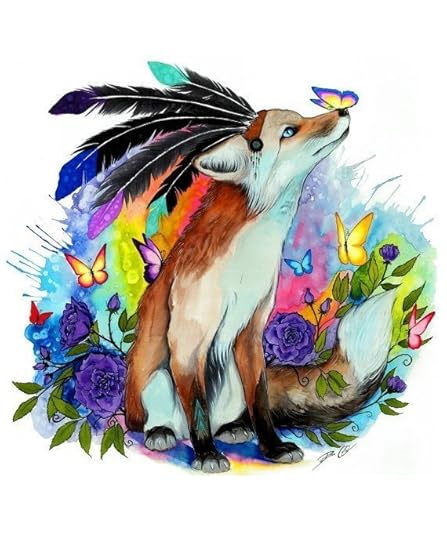
February 23, 2020
Why Ableism Hurts Everybody
[image error]
Why, yes, I am starting with such a controversial title.
This is a topic I’ve been wanting to tackle for a while. Now, remember, some of this is purely my opinion, but much of it is general consensus by the #ActuallyAutistic community, so while it’s still subjective, it should be accepted as good authority on the subject. And I’m warning potential trolls right now, I will not hesitate to block you.
Because, while everyone is entitled to their own views, you don’t have the right to tell someone else — who is living a completely different physical and mental experience than you — that theirs are absolutely wrong.
Okay, here we go…
The definition of ableism is someone who is without disability, disorder, or medical condition, and who believes that they are therefore superior to people who do live with any of the aforementioned. As recently as 30 years ago, a lot of “normal” people were kind of ableist without even realizing they were behaving in an offensive way. (Sort of similar to growing up in a culture where many are racist — if you’re not taught differently, you’ll think this is a regular state of thinking. Which is why the cycle has to be broken somewhere. More on that in a second.) Up until the early 21st century, very little was known about autism, learning disorders, various mental health issues, etc. — in some cases even by medical professionals — so terms like “retarded” weren’t considered hurtful or inaccurate.
Nowadays, though, a growing number of the general population knows better. Many doctors and psychologists have reclassified autism from a mental illness or a disease to a condition or disorder. Treatments to help manage anxiety and sensory-perception-induced stress are a lot more common now than even a decade ago. Some businesses, such as supermarkets or theaters, offer “autism-friendly” hours for shopping or attendance, and the lights will be turned down and crowds of people not permitted in.
All of this sounds like society as a whole is becoming more tolerant of the smaller groups traditionally relegated to its edges. Unfortunately, that’s not entirely true.
Too many of our relatives, neighbors, teachers, classmates, co-workers, employers, and random people we may cross paths with still look down on us, feel pity for us, and wonder why we wouldn’t do everything we could to become “normal.”
Here’s the reason this is ableist: Someone believing our lives will be less if we don’t go to the cinema, concerts, sports matches, or even drive in rush hour traffic is unfair and unbalanced. Such a view imposes simultaneous expectations and restrictions on us that we can’t hope to meet, or to be comfortable with. Standards for “average” people are not our standards, so trying to force us to reach them isn’t kind, or in fact helpful. Taking away our comfort zones isn’t beneficial, since most autists put firm boundaries in place to save our emotional and physical nerves. We won’t become “more” or “reach our full potential” by striving to act like “everyone else.”
[image error]
There are still too many therapists whose goal is to make sure autistic children appear “less autistic.” Their aim is not to teach kids who struggle with empathy how to walk in another’s shoes; rather, it’s to repress or even remove the impulses that come naturally to us. We stim because our bodies don’t receive and process external information in the same way the bodies of neurotypicals do; we are not purposefully hoping to come off as “weird” or “fidgety.” We tend to avoid or stay away from groups of people, especially strangers, because they’re simply often too loud and confusing for us, not because we’re determined to dislike them and their ordinary-ness. We don’t share their interests or pursuits for a number of reasons, most of which are hardly rooted in disdain or pure selfishness. Many of us hold little to nothing against “them,” and all we ask is to be extended the same courtesy.
There’s an odd disconnect between how society views autism versus other disabilities or conditions. For example, people with physical limitations, as a result of injury or illness, seem to get much more respect than those of us on the spectrum. There have been specialized parking spaces and store entrances and more accessible homes for such circumstances for a while now. But autists are still, for the most part, expected to just walk into stores where the lights are too bright, to live in apartments where the neighbor’s music is too loud, to speak on the phone to a complete stranger to resolve a billing dispute, and just deal with it.
It means that living in a world we have to constantly conform to — in ways that put our health at risk — is difficult, degrading, even dangerous.
We don’t ask to have autism; we don’t choose to be on the spectrum. It seems we’re born there, which means the decision or assignment is utterly out of our prenatal hands. While many of us accept how we are, learn to manage the downsides of our condition, and often even find identity and solace in the way we give our all to our passions and keep trying to pinpoint the bright side of life, we’re also frequently told this is “settling” or “unacceptable.”
I still don’t understand why. And I’m not alone.
Ableism not only hurts autists; ableism shuts out other points of view to the ableists. They could be learning something from us, something that might make their world a lot bigger.
And if we didn’t feel so oppressed by ableism, if we felt welcomed to “come as you are,” could we gain as well?
[image error]
February 20, 2020
The Times Are Changing
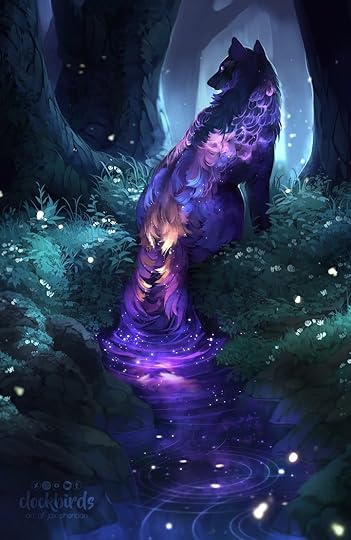
It’s not that I absolutely hate change. Change can be good, if there’s a situation or person or circumstance that’s really doing my head in; that altering or coming to an end will actually be beneficial, even if sometimes it doesn’t feel like it right away. But a major part of why autists don’t like change is because whenever something different or new happens, we can’t predict how it will make us feel — physically, and sensory-wise, and that can twist up our possibly already-challenged emotions. So, whenever I’m on the cusp of change — especially when I didn’t start the ball rolling for it — I get rather antsy.
We like our lives to be predictable, for all the aforementioned factors. Unfortunately, there’s also the danger of falling into an unproductive or unhealthy routine, just for the sake of keeping everything the same. And the past several weeks, I’ve found myself getting almost stuck in a pattern that meets basic needs, but doesn’t achieve certain goals. It can also be really intimidating for us to attempt going out of our comfort zones.
This past fall, after a long time of being a stay at home mom and focusing on writing, I started two new, outside-of-the-house, part-time jobs. And it was all good, and I have no regrets. But in the last couple of months, as the new-ness of an unfamiliar schedule became more common, and I realized I could go from thinking of myself in this “new” role to simply…being in these roles, as the dust of that settled, something else showed itself. I was having difficulty adjusting thinking of myself of being in my new roles as well as my old.
I hadn’t just stopped being a mother, or a writer, or a reader, overnight. On the surface, I knew all of that. Just because I had learned to be a library clerk didn’t mean I’d forgotten all my training in childhood development. Teaching ballet to adults for the first time didn’t invalidate or erase teaching it to children previously.
But somehow, the reality of my current situation and the intangibility of thoughts of the past weren’t clicking together.
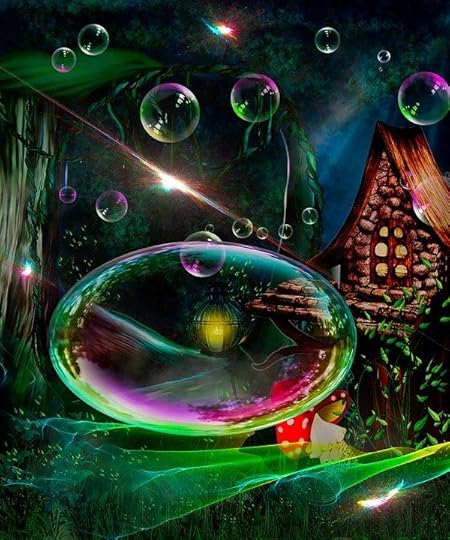
Then the other night, I was watching this horrifically boring documentary…and a really great story idea came to me. And I wanted to write it, badly, right then, at nine p.m., when I had work the next day. And all this week, as first one thing and then another and another have gotten in the way of my doing so, I palpably feel the ache of not writing enough.
This was also when it really sunk in, with the flair of an epiphany — whatever else I am, I am an artist. A creative and a creator. Even if I have to have a day job. Even if I get too busy or too tired to pen an entire novel in one sitting or choreograph a 15-minute piece, this doesn’t mean I won’t attempt it one day, very soon.
When you like your schedule to be predictable, reconciling the need for sporadic change — springing from the core of what makes you you — with a set routine can be pretty tricky. Having so many different ideas for projects means I won’t always be working on the same thing. That can be scary. That could put me off starting something new.
And that could stunt my creative growth — and in turn, my personal growth.

So, I could either give in to the temptation to keep everything the same…stay in my comfort zone…and remain artistically frustrated…or step out and shake things up.
It’s not always easy. It comes with its own obstacles. I might get distracted, have to put aside or revise plans, or let go of smaller ideas. There will very probably be moments when I question the point of doing any of it at all.
But in the end, if I don’t go ahead…that would result in the worst torture ever.
So, I foresee…change.
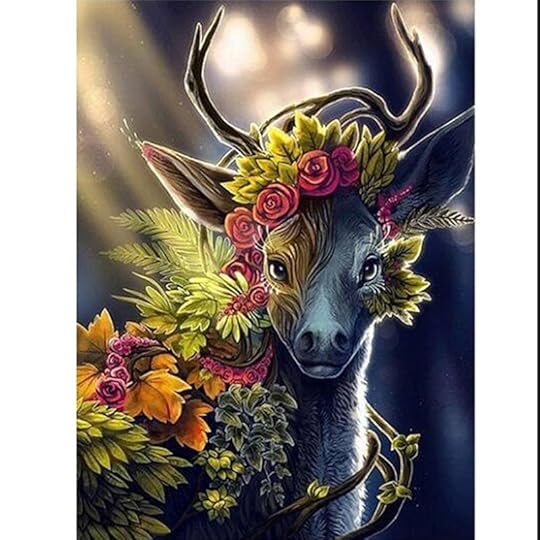
February 1, 2020
The Raven Cycle Revisited
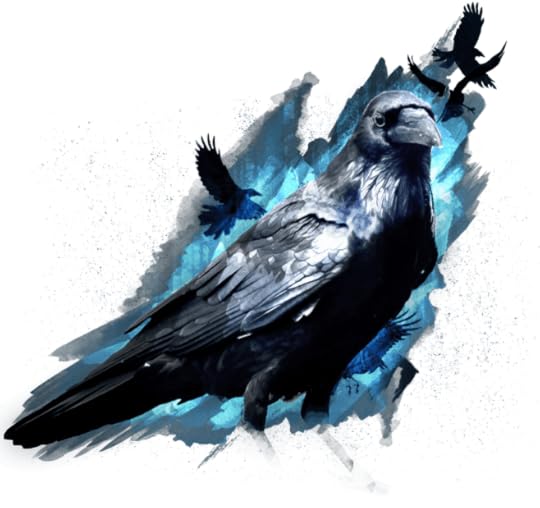
So, a few months ago, I decided to re-read the 4 books of The Raven Cycle by Maggie Stiefvater. Initially I read books 1 and 4 several years ago (when each was first published), and I just could not get into the writing style, the characters, or the plot. And quite honestly, this really bugged me, after thoroughly enjoying The Scorpio Races, and being so love in with The Wolves of Mercy Falls that I called it my top trilogy of the 2010s.
So, what made The Raven Boys so different for me? I couldn’t even put my finger on it, but there was an underlying tone to the writing that just seemed…somehow off. It wasn’t until recently, when I found out that Stiefvater had been tremendously ill for a number of years — while trying to finish writing The Raven Cycle — that it clicked.
Not wanting to just give up on one of my favorite authors, especially now that I understood there were extenuating circumstances, I determined that acquiring copies of and reading the entire series immediately was the way forward.
That part was an interesting journey in itself.
To begin with, the first set I ordered had really uneven printing — on some pages, the text was so light, I could barely make out all the words. It became really frustrating, to have to sit in just the right light, at just the right angle and right time of day, merely to be able to follow the story. So I returned that set, and ordered another, from a different store.
I experienced the same exact problem. While it wasn’t as pronounced in this set, and seemed to be mostly confined to books 1 and 4, there were still pages in books 2 and 3 where the words inexplicably faded considerably, then the density of the ink picked right back up in the next paragraph. It was disconcerting, and actually hampered my enjoyment of reading.
It made me sad.
Especially since I had finally found what was missing from my first experience with this series: its heart.
It all washed over me at once: Gansey and Blue are ADORABLE, Ronan is awesome, Adam is such a precious misunderstood cinnamon roll, and Noah’s tragic backstory, just…sobbing emoji. By the end of The Dream Thieves, I was IN LOVE with The Gray Man, the Lynch brothers, SO BADLY rooting for Blue and Gansey to beat their curses, and IT WAS ALL SO AMAZING.
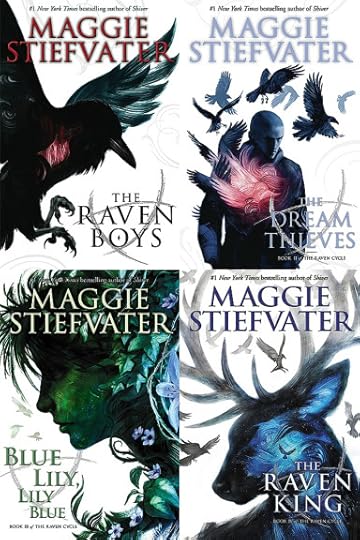
And then…it all began to fall apart for me in Blue Lily, Lily Blue. *sobs*
I have mentally gone back and forth about whether it’s mean or not to attempt to objectively critique the work of an author who was very sick at the time of writing. Because my respect and appreciation of the author remains intact — possibly it’s even gone up, knowing that she still managed to churn out bestselling novels despite suffering with serious health conditions.
Which is why it’s a little painful to admit that…the second half of this series falls distinctly flat for me. Evaluating as a reader, I have to say there were many inconsistencies, secondary characters that just kind of disappeared, subplots simply gone away, the introduction of new characters whose purpose was lost on me, and too many scenes that should’ve been pivotal felt either cut short, or the transitions were jumpy and it seemed like there was too much happening “offscreen.” I don’t agree with the direction of some of the character arcs, because they didn’t make sense for me as I was reading, and their choices seemed to come out of nowhere.
It’s why, in the end, I’m still going to rate this series as “in the middle” for my own enjoyment. It won’t probably ever rank up there with The Wolves of Mercy Falls. This does tug on my heartstrings a bit, I won’t lie. I do still kind of wish I could so deeply devote myself to all of the books written by an author who has given me so many cherished moments of laughter and tears.
But that’s also an important part of being a reader: Realizing that you are allowed your own opinion, that the writer doesn’t owe you anything, and making that special connection is worth savoring. We can’t expect every single book we pick up to change our lives. We should relish the ones that do.
And I know I do. Every time I catch a glimpse of the spines of Shiver, Linger, and Forever on my bookshelves, I smile. I sleep on a pillowcase bearing raven feathers and the words, “You are made of dreams.” Hanging from my light fixture is a wooden ornament announcing to the world, “Trees in your eyes, stars in your heart.” I know I’ll read whatever Maggie Stiefvater releases in the future, whether I adore it, or merely appreciate it.
There are so few authors I’ve read in my adult life who have spoken to me on a personal level, letting go because of one or two disappointments is simply not an option.
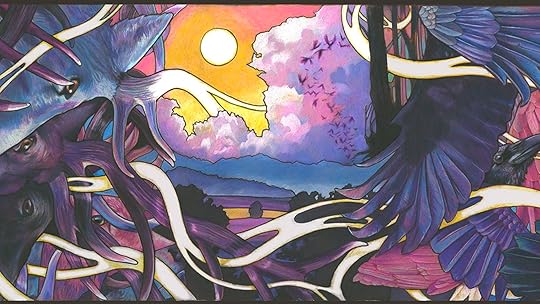
Daley Downing's Blog
- Daley Downing's profile
- 36 followers



